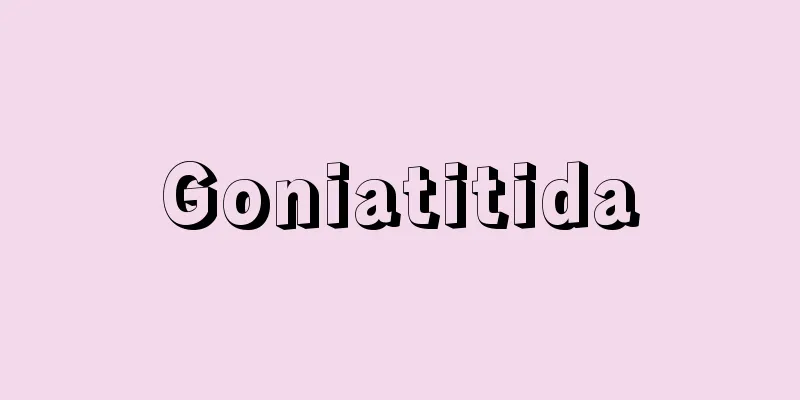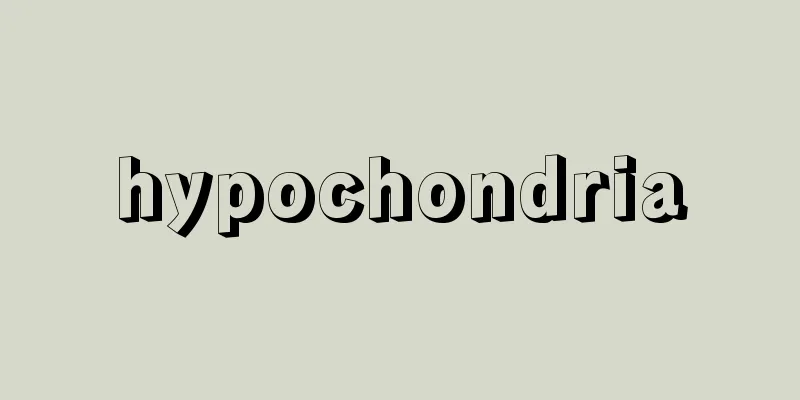Meniere's disease

|
What kind of disease is it? Main symptoms and progression Meniere's disease is a disease caused by abnormalities in the inner ear that causes repeated attacks of dizziness, and is characterized by tinnitus and hearing loss. In some cases, the patient only feels a slight sense of unsteadiness, but most attacks begin with a sudden attack of rotational dizziness (a feeling that the patient or the surroundings are spinning around). Each attack lasts from a few hours to a day. Hearing loss and tinnitus occur after or shortly before an attack of dizziness. Tinnitus and hearing loss can occur in one or both ears, and will return to normal once the attack of dizziness subsides. However, Meniere's disease is characterized by repeated attacks of dizziness separated by periods of no attacks (intermittent periods), and as attacks are repeated, tinnitus and hearing loss may not disappear and may continue to progress, so caution is required. Medication can reduce the number of attacks of dizziness or make them less severe, but it may not be possible to completely stop the progression of hearing loss. Other symptoms include a feeling of fullness in the ears, nausea or vomiting, cold sweats, a heavy head, and stiff shoulders. ● Causes of the disease and how symptoms develop When the lymph fluid filling the inner ear becomes excessive, it becomes endolymphatic hydrops. This causes dizziness. However, the reason why lymph fluid becomes excessive is unknown. Since it is more prevalent among people living in civilized societies and less prevalent among people in developing countries, it is thought that stress and overwork may be the trigger. Other factors that have been pointed out as being related to lack of sleep, excessive salt intake, smoking, and changes in atmospheric pressure, and in women, it also seems to be related to the timing of menstruation. ●Characteristics of the disease This disease was discovered by the French otolaryngologist Meniere in 1861. Although it is well known that dizziness is often associated with Meniere's disease, the incidence of Meniere's disease is not that high. EBM checks on common treatments and care [Treatment and care] If a seizure occurs, lie down and rest. [Evaluation] ☆☆ [Evaluation points] Although there are no reliable clinical studies, it may be necessary to prevent falls due to dizziness. [Treatment and care] Change lifestyle habits that may trigger attacks, such as overwork and lack of sleep. [Evaluation] ☆☆ [Evaluation Points] Clinical studies have not clarified whether overwork or lack of sleep can trigger attacks. There are also opinions that recommend avoiding salt, caffeine, and tobacco, but there are no reliable clinical studies on these either, but all of these are supported by expert opinion and experience. (1)(2) [Treatment and care] Seizures are suppressed with medication [Rating] ☆☆☆ [Evaluation Points] There are no drugs whose effectiveness against Meniere's disease has been confirmed in reliable clinical studies. There are reports that anticholinergic drugs reduce the frequency of dizziness. When vomiting is also present, an antiemetic drug would be appropriate. (3) [Treatment and care] Use medicine to prevent attacks [Rating] ☆☆☆ [Evaluation points] There are no drugs whose effectiveness has been confirmed through reliable clinical studies, but there are clinical studies that show that the diuretic betahistine mesilate has some effect on dizziness. (4)-(6) [Treatment and care] Perform endolymphatic sac decompression [Evaluation] ☆☆☆☆ [Evaluation points] Endolymphatic sac decompression is a surgery to drain excess lymphatic fluid from the inner ear. Although some reliable clinical studies have only observed a placebo (fake drug) effect, clinical studies since the 1990s have reported that dizziness, nausea, vomiting, and tinnitus improve after surgery. There are several surgical methods, but there does not appear to be any statistically significant difference between the different methods. (7)-(14) Checking commonly used drugs with EBM Medicine to suppress dizziness attacks [Name of medicine] Glyceol (a liquid containing concentrated glycerin and fructose) [Rating] ☆☆ [Evaluation points] There are no clinical studies showing that concentrated glycerin is effective against dizziness caused by Meniere's disease. It may be necessary to consider whether it is a drug of choice. [Drug name] Primperan (metoclopramide) [Rating] ☆☆ [Evaluation points] There are no clinical studies showing that metoclopramide is effective against dizziness caused by Meniere's disease. However, it may be used when nausea is also present. [Drug name] Meylon (sodium bicarbonate) [Rating] ☆☆ [Evaluation points] There are no clinical studies showing that sodium bicarbonate is effective for dizziness caused by Meniere's disease. It may be necessary to consider whether it is the drug of choice. [Drug name] Isobide (Isosorbide) (15) [Rating] ☆☆☆ [Evaluation points] Clinical studies have confirmed that isosorbide is effective against dizziness caused by Meniere's disease. It is likely to become one of the drugs of choice. [Drug name] Cephadol (Diphenidol hydrochloride) [Rating] ☆☆ [Evaluation points] There are no clinical studies showing that diphenidol hydrochloride is effective against dizziness caused by Meniere's disease. It may be necessary to consider whether it is a drug of choice. [Drug name] Grandaxin (tofisopam) [Rating] ☆☆ [Evaluation points] There are no clinical studies showing that tofisopam is effective against dizziness caused by Meniere's disease. It may be necessary to consider whether tofisopam is the drug of choice. [Drug name] Merislon (betahistine mesilate) (6) [Rating] ☆☆☆ [Evaluation Points] Several clinical studies have reported that betahistine mesilate relieves dizziness associated with Meniere's disease. It has not been shown to be effective for tinnitus or hearing loss. Although the clinical studies are not reliable, its effectiveness has been confirmed, and it is considered a good first-choice drug. [Drug name] Adephos Kowa/Trinosin (adenosine triphosphate disodium hydrate) (15) [Rating] ☆☆☆ [Evaluation Points] Clinical studies have confirmed that adenosine triphosphate disodium hydrate is effective against the symptoms of Meniere's disease. One clinical study reported that it was more effective than betahistine mesilate. [Drug name] Calnaculin/Circuletin S/Kallikrein (Kallidinogenase) [Rating] ☆☆ [Evaluation points] There are no clinical studies showing that kallidinogenase is effective against dizziness caused by Meniere's disease. It may be necessary to consider whether it is a drug of choice. [Drug name] Serocin/Horizon (diazepam) [Rating] ☆☆ [Evaluation points] There are no clinical studies showing that the anti-anxiety drug diazepam is effective against dizziness caused by Meniere's disease. However, it may be a good choice when severe anxiety symptoms are also present. A drug that improves blood circulation in the inner ear [drug name] Neuquinon (ubidecarenone) [Rating] ☆☆ [Evaluation points] There are no clinical studies showing that ubidecarenone is effective against dizziness caused by Meniere's disease. It may be necessary to consider whether it is a drug of choice. [Drug name] Adephos Kowa/Trinosin (adenosine triphosphate disodium hydrate) (15) [Rating] ☆☆☆ [Evaluation Points] Clinical studies have shown that adenosine triphosphate disodium hydrate is effective against the symptoms of Meniere's disease. One clinical study reported that it was more effective than betahistine mesilate. [Drug name] Vitamedin-S (a mixture of vitamins B1 , B2 , and B12 ) [Rating] ☆☆ [Evaluation points] There are no clinical studies showing that a combination of vitamins B1 , B2 , and B12 is effective against dizziness caused by Meniere's disease. It may be necessary to consider whether it is a drug of choice. [Drug name] Prostandin (alprostadil alfadex) [Rating] ☆☆ [Evaluation points] There are no clinical studies showing that alprostadil alfadex is effective against dizziness caused by Meniere's disease. It may be necessary to consider whether it is a drug of choice. Overall, it is currently the most reliable treatment method . First, rest and then undergo an examination to obtain an accurate diagnosis. Dizziness attacks are symptoms that cause great anxiety to patients. If it is known that it is Meniere's disease and the patient has experienced an attack before, anxiety may be somewhat alleviated, but if, without any previous symptoms, you are suddenly struck by dizziness, as if everything around you is spinning, and then you also experience auditory symptoms such as tinnitus and hearing loss, your anxiety will likely increase. First of all, even if you feel dizzy, you should rest, sit in a comfortable position, and wait for the symptoms to subside. If you rest for a few hours to a day, the symptoms will subside. If you try to force yourself to get up, you may fall, which is dangerous. Some types of dizziness are caused by brain diseases, so once the symptoms have subsided, you should see a specialist and have an examination performed to receive an accurate diagnosis to rule out any other serious illnesses. Although there is no clear evidence that overwork, lack of sleep, excess salt, caffeine, or tobacco are the triggers of seizures, experts support the opinion that it is better to avoid stress and these factors. This is a lifestyle change that you can do yourself, and it has no side effects, so give it a try. Treatment is with medication or surgery. Once a diagnosis of Meniere's disease is made, treatment currently involves medication and surgery. In particular, clinical studies have shown that the use of Merislon (betahistine mesylate), which suppresses attacks of dizziness, the drug Adephos Kowa/Trinosin (adenosine triphosphate disodium hydrate), which improves blood circulation to the inner ear, and endolymphatic sac release surgery are somewhat effective. Therefore, during an attack, the patient is kept at rest, and once the attack has subsided, Merislon (betahistine mesylate) or Adephos Kowa/Trinosin (adenosine triphosphate disodium hydrate) is used. If the attacks do not subside with medication alone, it may be appropriate to consider performing an endolymphatic sac decompression procedure. Note that surgery may not be appropriate in cases where there are abnormalities in both ears or in elderly patients. (1)Boles R, Rice DH, Hybels R, et al. Conservative management of Meniere's disease: Furstenberg regimen revisited. Ann OtolRhinolLaryngol. 1975;84:513-517. Source: "EBM: A book that explains correct treatment" Information about the book "EBM: A book that explains correct treatment" |
|
どんな病気でしょうか? ●おもな症状と経過 メニエール病は内耳(ないじ)の異常によって、めまい発作(ほっさ)をくり返す病気で、耳鳴りや難聴(なんちょう)を伴うのが特徴です。軽いふらつき感程度の場合もありますが、発作の多くは、突然、回転性(自分や周囲がぐるぐる回っている感じ)のめまいに襲われることで始まります。1回の発作は数時間から1日でおさまります。 めまいの発作がおきたあと、あるいは少し前から難聴、耳鳴りがおこります。耳鳴りや難聴は片耳の場合も両耳の場合もあり、めまいの発作がおさまると、回復します。しかし、メニエール病では、発作のない時期(間欠期)をはさんで、めまいの発作がくり返されるのが特徴で、発作がくり返されるうちに、耳鳴りや難聴が消えずに進行していくことがあり、注意が必要です。薬によってめまいの発作の回数を減らしたり、軽くしたりはできますが、難聴の進行を完全には食い止めることができないこともあります。 そのほかの症状としては、耳がつまった感じ、吐き気や嘔吐(おうと)、冷や汗、頭が重い、肩がこるなどがあります。 ●病気の原因や症状がおこってくるしくみ 内耳を満たしているリンパ液が過剰になると内リンパ水腫(すいしゅ)になります。これによってめまいが引きおこされます。しかし、なぜリンパ液が過剰になってしまうのか原因はわかっていません。文明社会に生活する人に多く、発展途上国の人に少ないことから、ストレスや過労が引きがねになっているのではないかと考えられています。そのほか、睡眠不足や塩分のとりすぎ、喫煙や気圧の変化などとの関連が指摘され、女性では月経の時期とも関係しているようです。 ●病気の特徴 1861年、フランスの耳鼻科医メニエールが発見した病気です。めまいといえばメニエールといわれるほど有名ですが、メニエール病の頻度(ひんど)はそれほど高くはありません。 よく行われている治療とケアをEBMでチェック [治療とケア]発作がおきたら横になって安静にする [評価]☆☆ [評価のポイント] 信頼性の高い臨床研究は見あたりませんが、めまいによる転倒予防のためには必要と考えられるでしょう。 [治療とケア]過労、睡眠不足など発作の引きがねとなるような生活習慣を改める [評価]☆☆ [評価のポイント] 過労や睡眠不足が発作の引きがねになるかどうかは臨床研究で明らかにされていません。また、塩分、カフェイン、たばこを控えるべきとする意見もあり、こちらも信頼性の高い臨床研究は行われていないようですが、いずれも、専門家の意見や経験からは支持されています。(1)(2) [治療とケア]発作がおこったときには薬で抑える [評価]☆☆☆ [評価のポイント] 信頼性の高い臨床研究で、メニエール病に対して効果が確認されている薬は見あたりません。抗コリン薬でめまいの頻度が減少したとの報告はあります。嘔吐などを伴うときは制吐薬(せいとやく)が適当でしょう。(3) [治療とケア]発作を予防するための薬を用いる [評価]☆☆☆ [評価のポイント] 信頼性の高い臨床研究で効果が確認されている薬は見あたりませんが、利尿薬、ベタヒスチンメシル酸塩でめまいに関してやや効果を認めたとの臨床研究があります。(4)~(6) [治療とケア]内リンパのう開放術を行う [評価]☆☆☆☆ [評価のポイント] 内リンパのう開放術とは、内耳に増えすぎたリンパ液を排出する手術です。いくつかの信頼性の高い臨床研究では、プラセボ(偽薬)効果のみが認められていましたが、1990年代以後の臨床研究では、術後、めまい、吐き気・嘔吐、耳鳴りが改善すると報告されています。手術の方法はいくつかありますが、それぞれの方法に統計学的に意味のある差はないようです。(7)~(14) よく使われている薬をEBMでチェック めまいの発作を抑える薬 [薬名]グリセオール(濃グリセリン・果糖配合液) [評価]☆☆ [評価のポイント] 濃グリセリンがメニエール病のめまいに対して効果があることを示す臨床研究は見あたりません。選択薬かどうかは検討する必要があるかもしれません。 [薬名]プリンペラン(メトクロプラミド) [評価]☆☆ [評価のポイント] メトクロプラミドがメニエール病のめまいに対して効果があることを示す臨床研究は見あたりません。しかし、吐き気を伴う場合は用いることもあります。 [薬名]メイロン(炭酸水素ナトリウム) [評価]☆☆ [評価のポイント] 炭酸水素ナトリウムがメニエール病のめまいに対して効果があることを示す臨床研究は見あたりません。選択薬かどうかは検討する必要があるかもしれません。 [薬名]イソバイド(イソソルビド)(15) [評価]☆☆☆ [評価のポイント] イソソルビドがメニエール病のめまいに対して効果があるということが臨床研究によって確認されています。選択薬の一つになると思われます。 [薬名]セファドール(ジフェニドール塩酸塩) [評価]☆☆ [評価のポイント] ジフェニドール塩酸塩がメニエール病のめまいに対して効果があることを示す臨床研究は見あたりません。選択薬かどうかは検討する必要があるかもしれません。 [薬名]グランダキシン(トフィソパム) [評価]☆☆ [評価のポイント] トフィソパムがメニエール病のめまいに対して効果があることを示す臨床研究は見あたりません。選択薬かどうかは検討する必要があるかもしれません。 [薬名]メリスロン(ベタヒスチンメシル酸塩)(6) [評価]☆☆☆ [評価のポイント] いくつかの臨床研究でベタヒスチンメシル酸塩はメニエール病のめまいを軽減するとの報告があります。耳鳴りや難聴には効果が示されていません。信頼性の高い臨床研究ではありませんが、効果が確認されており、第一選択薬としてよいと思われます。 [薬名]アデホスコーワ/トリノシン(アデノシン三リン酸二ナトリウム水和物)(15) [評価]☆☆☆ [評価のポイント] アデノシン三リン酸二ナトリウム水和物はメニエール病の症状に対して効果があることが臨床研究によって確認されています。ある臨床研究では、ベタヒスチンメシル酸塩と比較して、より効果があったと報告しています。 [薬名]カルナクリン/サークレチンS/カリクレイン(カリジノゲナーゼ) [評価]☆☆ [評価のポイント] カリジノゲナーゼがメニエール病のめまいに対して効果があることを示す臨床研究は見あたりません。選択薬かどうかは検討する必要があるかもしれません。 [薬名]セルシン/ホリゾン(ジアゼパム) [評価]☆☆ [評価のポイント] 抗不安薬のジアゼパムがメニエール病のめまいに対して効果があることを示す臨床研究は見あたりません。しかし、強い不安症状が伴う場合は対象となるでしょう。 内耳の血液循環を改善する薬 [薬名]ノイキノン(ユビデカレノン) [評価]☆☆ [評価のポイント] ユビデカレノンがメニエール病のめまいに対して効果があることを示す臨床研究は見あたりません。選択薬かどうかは検討する必要があるかもしれません。 [薬名]アデホスコーワ/トリノシン(アデノシン三リン酸二ナトリウム水和物)(15) [評価]☆☆☆ [評価のポイント] アデノシン三リン酸二ナトリウム水和物はメニエール病の症状に対して効果があることが臨床研究によって認められています。ある臨床研究では、ベタヒスチンメシル酸塩と比較してより効果があったと報告しています。 [薬名]ビタメジン-S(ビタミンB1・B2・B12混合剤) [評価]☆☆ [評価のポイント] ビタミンB1・B2・B12混合剤がメニエール病のめまいに対して効果があることを示す臨床研究は見あたりません。選択薬かどうかは検討する必要があるかもしれません。 [薬名]プロスタンディン(アルプロスタジルアルファデクス) [評価]☆☆ [評価のポイント] アルプロスタジルアルファデクスがメニエール病のめまいに対して効果があることを示す臨床研究は見あたりません。選択薬かどうかは検討する必要があるかもしれません。 総合的に見て現在もっとも確かな治療法 まずは安静にしたのちに、検査で正確な診断を めまいの発作は、患者さんに非常に不安を与える症状です。メニエール病であることがわかっていて、以前に経験したことのある発作であれば不安はいくらか軽くなりますが、これまでそういった兆候もないのに、突然、周囲がぐるぐる回っているようなめまいに襲われ、その後、耳鳴りや聞こえが悪くなるなどの聴覚の症状もおこってくると、ますます不安は募(つの)るでしょう。 まずは、めまいがおこっても安静にし、楽な姿勢で、症状がおさまるのを待つことです。数時間~1日も安静にしていれば、症状がおさまってきます。無理しておき上がろうとすると、転倒する可能性もあるので危険です。 めまいには脳の病気によっておこるものもありますから、落ち着いたら、専門医を受診し、検査によってほかの深刻な病気でないかどうかの正確な診断を受けるべきでしょう。 過労や睡眠不足、過剰な塩分、カフェイン、たばこが発作の引きがねになるかどうか明らかな根拠は認められませんが、ストレスやこれらの因子を避けたほうがいいという意見は専門家から支持されています。自分でできる生活習慣の見直しであり、副作用もありませんから、試してみましょう。 治療は薬か手術で メニエール病との診断がつけば、現在のところ、薬と手術で治療が進められます。 とくに、めまいの発作を抑えるメリスロン(ベタヒスチンメシル酸塩)、内耳の血液循環をよくする薬アデホスコーワ/トリノシン(アデノシン三リン酸二ナトリウム水和物)の使用と、内リンパのう開放術については、臨床研究によってある程度有効であることが認められています。 したがって、発作中には安静にして、落ち着いたらメリスロン(ベタヒスチンメシル酸塩)、アデホスコーワ/トリノシン(アデノシン三リン酸二ナトリウム水和物)を用います。 薬だけでは発作がおさまらないときには、内リンパのう開放術を行うことを検討するのが適切と思われます。なお、手術は両耳に異常がおこっている場合や、お年寄りの場合などは適応にならないことがあります。 (1)Boles R, Rice DH, Hybels R, et al. Conservative management of Meniere's disease: Furstenberg regimen revisited. Ann OtolRhinolLaryngol. 1975;84:513-517. 出典 法研「EBM 正しい治療がわかる本」EBM 正しい治療がわかる本について 情報 |
Recommend
Boat lodge - Funayado
An inn for sailors. A boathouse for senior sailor...
Gibbons, HA - Gibbons
…However, at the same time, Christian peoples in ...
Odria, M.
...In other words, in a highly professionalized m...
Stress relief annealing - Stress relief annealing
…Thermo-mechanical treatment, which combines plas...
Regional metropolis
The size of the metropolitan area (area) that a ci...
Selection of Eikyokusho
A music book from the late Heian period. One volum...
Takeda Nobuyoshi
1583-1603 A daimyo in the early Edo period. Born ...
Kansei-in Temple
...The Yamanashi National Medical University is l...
César‐Pierre Richelet
1631‐98 French lexicographer. Born into a family o...
Ogura Bunkyo
…He was later given the posthumous name Bunkyo. H...
Teatro alla Scala, Milano (English name) TeatroallaScalaMilano
…First performance was on November 4, 1737, by D....
Rescue vehicle
〘Noun〙① A type of railroad freight car. When an em...
Ureibushi - Ureibushi
...This was a transitional phenomenon, as no dist...
Ogmios
...The sickle is an attribute of the Roman god of...
Fleischer, R.
…American animation brothers who brought popular ...









![Mizoram [State] (English spelling)](/upload/images/67ccf1d5f3c39.webp)